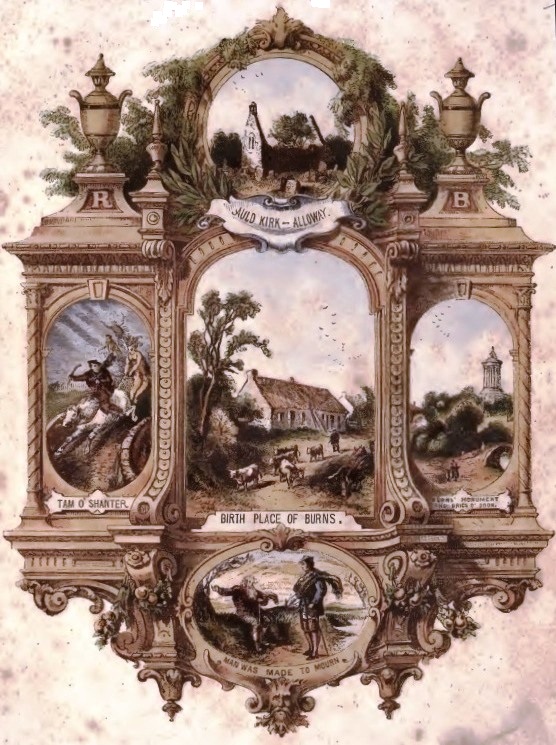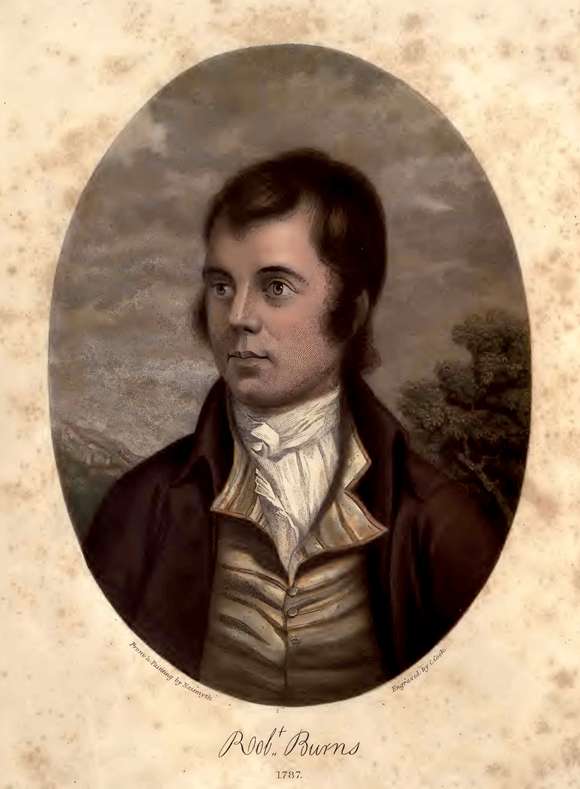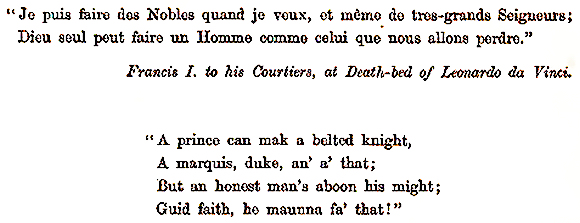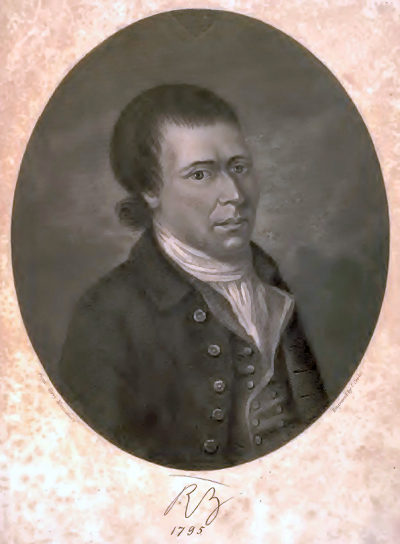|
Peter Hately Waddell (19 May
1817 – 5 May 1891) was a Scottish cleric and prolific writer.
Peter Hately Waddell was the son of James Waddell of Balquhatston, and was
born at Balquhatston House, Slamannan, Stirlingshire on 19 May 1817. His
father soon afterwards disposed of the property and removed to Glasgow, and
Waddell was educated in the high school and at the university of Glasgow. He
was a student of divinity at the time of the disruption of 1843 of the
Church of Scotland, and then cast in his lot with the seceders, who
afterwards formed the free church of Scotland. Having been licensed as a
preacher, in 1843 he was ordained as minister of Rhynie, Aberdeenshire, and
in the following year he removed to Girvan, Ayrshire, to the pastorate of a
small free-church congregation. His attachment to the free church was
loosened when he found that its members intended to retain in the entirety
the rigid definitions contained in the Westminster confession of faith. He
had outgrown his early Calvinistic training, and, finding himself at
variance with the church of his adoption, he voluntarily resigned his
charge, and founded an independent chapel at Girvan styled ‘the Church of
the Future,’ defining his aims and intentions in a discourse with the same
title, published in Glasgow in 1861. Many of his congregation left the free
church and joined with him. Waddell remained at Girvan till 1862, when he
went to Glasgow, and began preaching in the city hall as an independent
minister. He soon gathered a large congregation, and in 1870 a church was
erected for him in East Howard Street, Glasgow. Financial difficulties led
to the abandonment of this building, and Waddell once more gathered a
congregation by preaching in the Trades Hall. In 1888, at the request of
friends and adherents, he joined the established church. Advancing years
compelled him to retire from the ministry in October 1890, and he then began
to make selections from his published works to form a volume. The task was
not completed when his death took place at Ashton Terrace, Dowanhill, on 5
May 1891. He graduated D.D. from an American university.
Waddell was an orator of very exceptional power. His skill as a dialectician
was displayed in a series of lectures on Ronan's ‘Life of Jesus,’ delivered
in Glasgow City Hall before large audiences in 1863, and afterwards
published. His profound admiration for Burns led to his issuing a new
edition of the powers with an elaborate criticism (Glasgow, 1867–9). He
presided at the meeting held in Burn’s cottage on 25 January 1859 in
celebration of the poet’s birth, and then delivered an impassioned eulogy on
Burns.
His chief historical work was a volume entitled 'Ossian and the Clyde', in
which he sought to confirm the authenticity of the Ossianic poems by the
identification of topographical references that could not be known to
Macpherson. He also contributed a remarkable series of letters to a Glasgow
journal on Ptolemy’s map of Egypt, showing that the discoveries of Speke and
Grant had been foreshadowed by the old geographer. He took a keen interest
in educational matters, and was a member of the first two school boards in
Glasgow. His most original contribution to literature was a translation of
the Psalms of David from Hebrew into the Scottish language, under the title
'The Psalms: frae Hebrew intil Scottis', in which he showed his profound
linguistic knowledge. This work was followed in 1870 by a similar
translation of Isaiah. In the early part of his career he attracted much
notice by lectures which he delivered in London and the principal Scottish
towns. Between 1882 and 1885 he edited the Waverley novels with notes and an
introduction.

Prefatory Note
In undertaking a now Life of
Robert Bums in connection with an Edition of his Works, the present Editor,
by predilection and deliberate choice, as much as by necessity, was induced
to confine himself
to that department of biography which had hitherto been unattempted in
relation to so wonderful an existence. To say anything entirely new, except
in mere details, of the history or career of Bums was difficult, if not
impossible; to re-arrange, or classify on any other than the legitimate
chronological principle, facts already notorious to the world in connection
with that career, would have been superfluous, and unsatisfactory both to
the reader and the writer; but through facts already known, to trace the
development of so great a soul, and by any possible addition to the number
of these, or by placing them in any new light, more fully to illustrate its
inner life and ultimate vital relation to mankind, was neither impertinent
nor unnecessary labour. To such labour he has almost exclusively confined
himself; and in the prosecution of this task has been fortunate enough to
discover many facts hitherto unknown, even documents hitherto unpublished,
and, at the last moment, an original Likeness, of strange and solemn beauty,
and of the rarest fidelity, hitherto unseen; which have contributed in a
sort of providential way to illuminate and complete the outline.
In editing works which have
been so often presented to the world, nothing very novel could be attempted.
The Editor’s chief concern, therefore, has been to adhere as far as possible
to the Author’s own arrangement when in the fulness of his manhood, and to
the order of time where clearly established, in those portions which were
either neglected by him then, or recovered only after his decease. In
correcting or restoring the Text, the utmost care has been exercised to
obtain the truest, by comparing the original with the best, succeeding
editions; and in the Notes, besides the repetition of interesting facts and
dates already known, the Editor has not only made several original additions
in this department, but has adopted a system of commentary both critical and
moral, such as he believes to be in harmony with the grand essential
character of the works themselves.
Details of life, which could
not with propriety be introduced in such a biography as that which he
proposed, have been reserved for insertion in their proper places in the
Correspondence; and a large mass of new, characteristic, and unquestionable
memoranda from the contemporaries of the Poet himself or from their
children, with other matters of importance or of curiosity, has been
arranged under suitable heads in an Appendix, to which the reader will find
sufficiently distinct references in the course of the Biography or of the
Works. The place thus chosen for these extra-biographical details has been
kept as far in rear as possible, that all and every fact which may be
discovered or authenticated, during the progress of the work, may obtain
insertion there, if. of importance sufficient to justify its publication.
CONTENTS
Volume 1
Life of Burns: a Spiritual Biography. By
Editor.
Part First: Morning—On
the Soil.
Part Second:
Mid-Day—Above the Soil.
Part Third:
Gloaming—Return to the Soil.
Part Fourth: Night,
and After-Night—Underneath and Beyond the Soil.
Poems of First and Second Editions:
Notes Critical and Historical.
Notes Critical and Historical to Last Editions
Notes
Critical and Historical to Posthumous Works
Poems: From Author's Last
Editions
Songs: From Johnson's
Scots Musical Museum
Annotations on
Johnson's Scots Musical Museum by Robert Burns
Songs: From Thomson's Collection
Various
Readings: From Kilmarnock, Edinburgh & Author's Latest Editions
Posthumous Poetical Works
Poems and Songs
Doubtfully or Incorrectly ascribed to Burns


Volume 2
Prose Works: Being Chiefly Correspondence with
Biographical Remarks

Contents
Part I - Special
Correspondence
Part II - Literary Correspondence
Part III - General Correspondence
Part IV - Domestic Correspondence |

